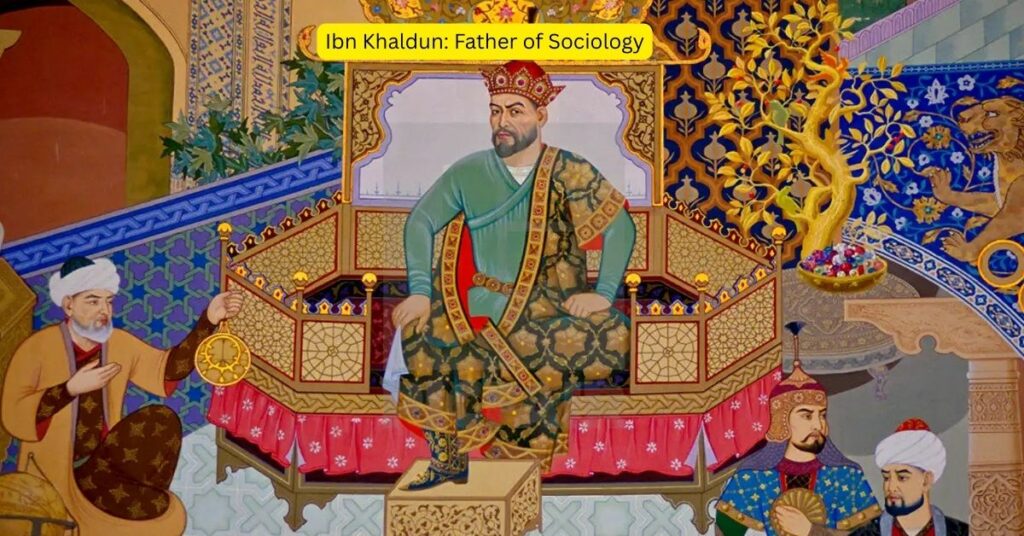Ibn Khaldun, one of the most remarkable intellectuals of the medieval Islamic world, is widely recognized as the Father of Sociology. Born in 1332 in Tunis, he was a historian, philosopher, and scholar whose groundbreaking work laid the foundation for modern social sciences. His ideas on history, economics, politics, and society continue to inspire academics worldwide, highlighting his status as a visionary far ahead of his time.
Early Life and Education
Ibn Khaldun was born into an educated Andalusian family known for its service in politics and scholarship. He received a comprehensive education in theology, law, literature, philosophy, and mathematics. His intellectual curiosity, combined with exposure to the political turbulence of North Africa, deeply shaped his thoughts on human society and governance.
The Muqaddimah: A Revolutionary Work
Ibn Khaldun’s most celebrated contribution is his monumental book, Al-Muqaddimah (The Introduction), written in 1377. This masterpiece was intended as a preface to his historical writings, but it soon became a standalone text of immense significance. In it, he systematically analyzed the rise and fall of civilizations, introducing concepts that are still central to sociology and historiography.
Some of the key ideas in The Muqaddimah include:
- Social Cohesion (Asabiyyah): Ibn Khaldun argued that group solidarity is essential for the rise of civilizations. When solidarity declines, societies become weak and vulnerable to collapse.
- Cyclical Theory of History: He proposed that dynasties and states follow a natural cycle of birth, growth, and decline.
- Economics and Labor Theory: He emphasized the importance of labor, trade, and production as the backbone of economic prosperity.
- Education and Knowledge: Ibn Khaldun highlighted the role of education in shaping societies, stressing the need for both intellectual and moral development.
Ibn Khaldun’s Contribution to Sociology
Ibn Khaldun’s approach was unique because he treated history not just as a record of events but as a science that should be studied systematically. His emphasis on social structures, economic conditions, and cultural dynamics paved the way for the discipline of sociology. Long before European thinkers like Auguste Comte or Émile Durkheim, Ibn Khaldun had already outlined principles of social science.
His concept of Asabiyyah remains highly relevant, helping scholars understand the role of community and collective identity in political and social life. Similarly, his analysis of the relationship between economics and social stability anticipates modern discussions on inequality and development.
Legacy and Influence
Although his ideas were not widely recognized in the West until centuries later, Ibn Khaldun’s work profoundly influenced both Islamic and global thought. European scholars in the 19th and 20th centuries hailed him as a pioneer of sociology, economics, and historiography. Today, his theories are studied in universities around the world, reminding us of his timeless insights.
In Tunisia, Egypt, and beyond, Ibn Khaldun is celebrated as a symbol of intellectual brilliance. His vision of society, rooted in careful observation and rational analysis, continues to guide research in history, sociology, and political science.
Conclusion
Ibn Khaldun’s extraordinary intellect and pioneering methods have secured his place in history as the Father of Sociology. His ability to connect history, economics, politics, and culture into a comprehensive framework demonstrates his genius. More than six centuries later, his ideas remain relevant in understanding the complexities of human society.
Ibn Khaldun’s legacy reminds us that true wisdom transcends time and place, offering guidance for both the present and the future.
Would you like me to also optimize this article with meta description, focus keywords, and headings structure (H1, H2, H3) for maximum SEO impact?





